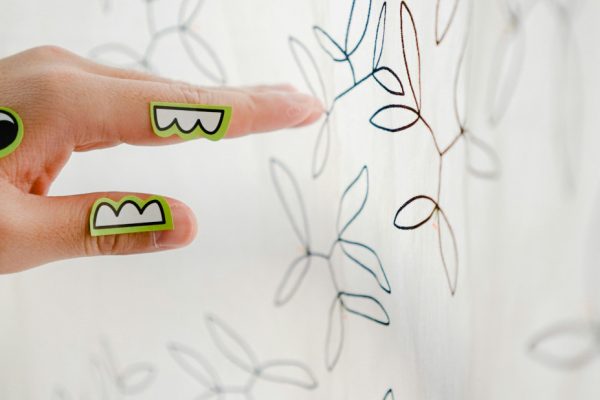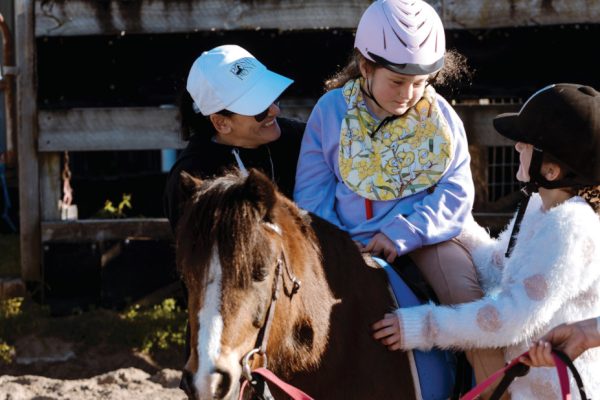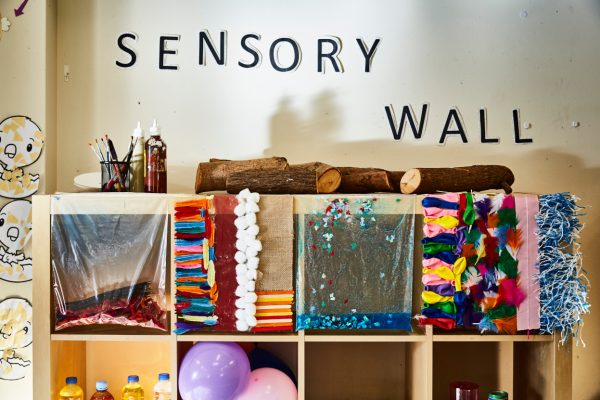
Diagnosis autism: Eddie’s story
Although pursuing and receiving an autism diagnosis can be challenging, many families will tell you how grateful they are for the clarity and support a diagnosis brings. Vasily shares his journey with his son Eddie and his advice for other autism families and those who are thinking about an autism diagnosis.
Eddie was progressing as any other child would until he was 16 months old. We already had a basic understanding of developmental milestones, thanks to our experience with our older daughter who is now seven. However, at 16 months, we noticed concerning changes in Eddie. He stopped reacting to his name, began lining up his toys meticulously, and would be showing interest in repetitive behaviours, such as pressing the same button countless time on his toy. He started tip toe walking and would entertain himself by spinning around and flapping hands. He ceased pointing at objects and began guiding his mother’s hand to indicate or reach for things he wanted. Words that he had previously mastered were suddenly forgotten. Today, we know these were early indicators of autism, but at that time, we perceived them as quirks and simply part of Eddie’s unique developmental path.
We did voice our worries to our general practitioner. However, we were reassured that Eddie was too young for any type of diagnosis and that his slower development was typical for boys compared to girls. We were assured that boys are just slower than girls and that Eddie does not look like a typical autistic child who is not responding to any external stimuli. And as for our concerns, as parents, we were just being way too paranoid and should just relax or take a vacation.
Armed with false reassurance from my GP, we took the leap and reached out to autism parent support groups on social media. There, we received invaluable advice from fellow parents who emphasised the importance of finding a trustworthy developmental paediatrician. This doctor would not only guide us throughout the process but also help us assemble an appropriate multidisciplinary support team for our child.
Fortunately, luck was on our side, and we discovered an incredible paediatrician. Through multiple visits, formal assessments, careful observations, and the reports from therapy providers, this remarkable professional was able to diagnose Eddie accurately. We continue to visit our paediatrician every six months for general updates and discussions on the next steps in our journey.
Coming to terms with a child’s diagnosis is often the most challenging part for parents, and it was no different for us. As a father, I managed to cope more effectively at first, thanks in large part to the wonderful support I received from my back than employer at financial services company and work colleagues, to whom
I shared our family situation and Eddie’s diagnosis. The diagnosis acceptance, however, was significantly more difficult for my wife, who spent several weeks in somewhat ‘denial’. She tried to persuade me and others that Eddie’s signs were normal and something he would eventually outgrow. When confronting an autism diagnosis, it often feels like a solitary journey for parents, however we learnt that being open about our son’s disability helped us to come with terms a lot easier and meet incredible and caring people along the way.
It’s vitally important to cast aside fear and savour every moment with our children. While much remains unknown about autism’s causes and reasons,
one thing we do know is that children with autism are extraordinary. They continually surprise us with their amazing, often hidden, talents!
For more free and evidence-based autism information and support, visit autismawareness.com.au





